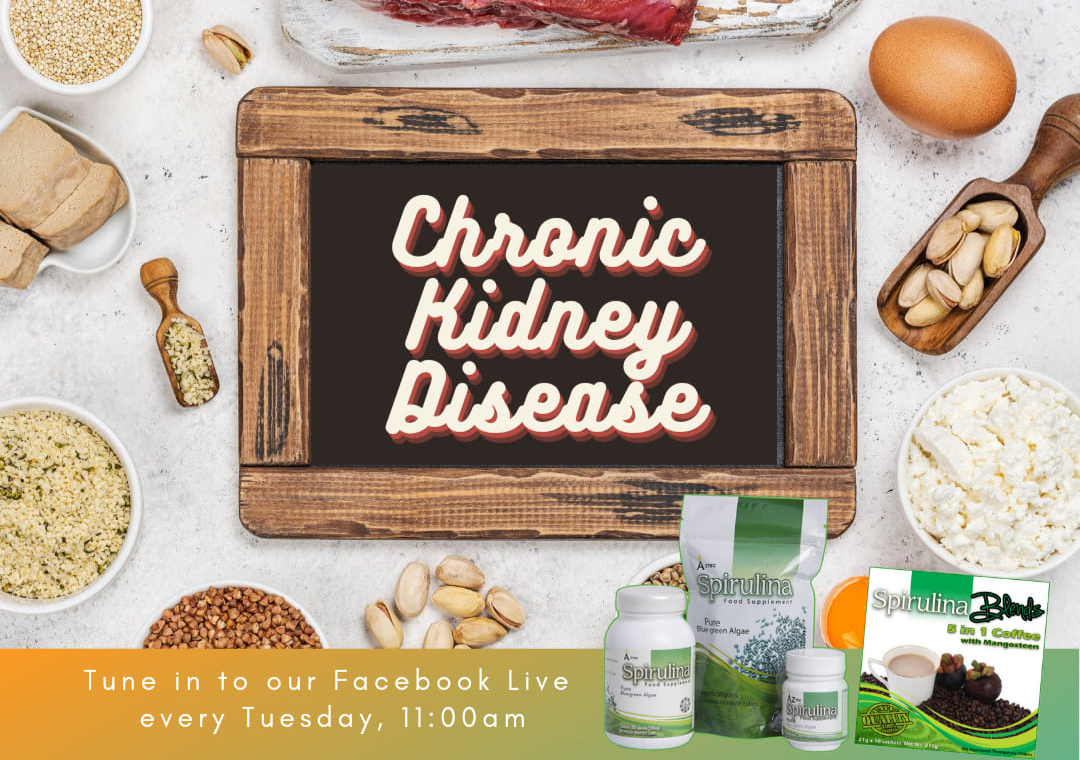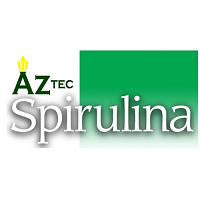- Track your orders
- Save your details for express checkout
Blog

5 Reasons How Spirulina Lower High Blood Pressure
Spirulina has Good Cholesterol
People with hypertension tend to have clogged arteries and blood vessels due to excessive eating of red meat, processed meat, dairy, baked goods and sweets, fried food, tropical oils and more. Spirulina has high good cholesterol (HDL). It is known as good cholesterol because it absorbs cholesterol in the blood and carries it back to the liver. The liver then flushes it from the body. Thus good cholesterol is responsible for removing bad cholesterol (LDL) in the blood lowering the risk of heart disease and stroke.
Spirulina has Nitric Oxide
Nitric oxide is vital for regulating blood pressure. Together with the spirulina’s good cholesterol the lining of the blood vessels becomes more responsive. Recent studies have shown that nitric oxide stabilizes blood pressure. Spirulina’s nitric oxide helps dilate and expand the blood vessels to prevent high blood pressure.
Powerful Antioxidants and Anti-inflammatory properties of Spirulina
Third, Spirulina has plenty of natural antioxidants such as Phycocyanin, Chlorophyll and Beta Carotene. Oxidative stresses and inflammations in the body cause free radicals to multiply and adversely alter lipid, proteins and DNA and trigger a number of human diseases. Based on extensive studies C-Phycocyanin is a powerful antioxidant because it can activate antioxidant enzymes, scavenge free radicals, and protect against lipid peroxidation and DNA damage. Chlorophyll is also an antioxidant because it helps remove inflammation in several parts of the body and also cleans the blood resulting to better blood circulation. There were also research showing that Chlorophyll inhibit lipid peroxidation and protect mitochondria oxidation. Lastly, carotenoids, specifically beta-carotene, acts as a scavenger of lipophilic radicals within membranes of every cell compartment. It also presents an oxidative modification of LDL (Bad Cholesterol) out of the body. Spirulina is rich in Beta-carotene containing 30x more carotenoids than carrots.
Potassium and Magnesium in Spirulina
Magnesium and potassium are relevant in controlling high blood pressure. Magnesium for instance is crucial for muscle and nerve function. It helps relax the muscles, nerves, and blood vessels maintaining normal blood pressure. Recent studies show that potassium helps ease the tension in the blood vessel walls. Another culprit in high blood pressure is sodium. Sodium attracts water resulting in water retention making blood thicker which in turn increases blood pressure. The more potassium you eat, the more sodium you lose through urine. Spirulina has the complementary benefits of magnesium relaxing the blood vessel walls while potassium in removing sodium in the blood.
Spirulina Has Amino Acids
Spirulina is known to have complete non essential and essential amino acids. It is rare for any food to contain all amino acids. Based on an article from todayspractitioner.com there are seven amino acids namely: arginine, cysteine, glutamic acid, glycine, histidine, leucine, and tyrosine was associated with lower levels of arterial stiffness. Spirulina also helps ease stress and anxiety and improve focus. Most Aztec Spirulina patients experience better sleep pattern and less grogginess upon waking up after taking 2 capsules in the morning and 1 capsule before sleeping.
Spirulina is good for high blood pressure. In this article, we examined the top 5 reasons that can help regulate high blood pressure. Always make sure to check the brand, source and purity of your spirulina. To make sure that your spirulina is pure and high grade, add 2 capsules of Aztec Spirulina to your daily diet to help reduce blood pressure levels.

Chronic Kidney Disease and Spirulina Explained!
Healthy Kidneys with Spirulina
Spirulina is a balanced complete food by itself. It contains vitamins, minerals, vegetable protein, amino acids, antioxidants and phycocyanin. Based on researchgate.net studies, the “antioxidant, anti-inflammatory, and cytoprotective properties of Spirulina prevents the progression of Chronic Kidney Disease (CKD) and cardiovascular complications.” Kidneys can heal itself with the help of proper diet, moderate exercise and nourishment from spirulina.
Medical Doctor talks about Kidney Disease and Spirulina
Dr. Ramon Arnold Ramos of La Salette Clinic from Imus, Cavite shares his findings on how Aztec Spirulina benefits his patients with kidney problems. From reduction of swelling to controlling BUN Creatinine after a few weeks of use. Click here to watch more…
Detect Kidney problems through the BUN Creatinine Test
One major role of the kidneys is to remove waste products and excess fluid from the body. These waste products are usually a result of eating food high in bad cholesterol (LDL), highly refined sugar and other toxins. As food and drink passes through the liver, its waste product in the form of BUN goes to the bloodstream where the kidneys filter it and flushes it out the body through urine. However, if the kidneys are not healthy, it will have trouble removing the BUN from the blood. Too much waste products in blood damages the circulation of the body which results in cardiovascular disease, hypertension, diabetes and more. Another waste product that goes through the kidneys is Creatinine, a waste product from muscle metabolism. If the BUN and Creatinine content in the blood is over the limit or high, this indicates that there is a problem in your kidneys.
Signs and Symptoms of Kidney Problem
Food to Avoid for Chronic Kidney Disease
To prevent further damage of the kidneys, it is very important to know the right nutrients that will enhance kidney function and avoid food that will stress the kidneys. Damaged kidneys could not filter out excess Sodium, Potassium Phosphorus, and Protein metabolites. Here is a list of food that needs to be limited or avoided if you have kidney problems.
- Banana
- Avocados
- Tomatoes
- Fruit juices with high sugar
- Dark colored soda,
- Processed meats
- Packaged, instant and premade meals
- Canned food
- Pickles, processed olives
- Legume or beans
- Dairy products
- Other fruits such as oranges, melon, dates, apricots, peach, prunes, raisins
- Potatoes and sweet potatoes
- Saltwater fish such as mackerel, salmon, tuna and maya-maya
- Leafy green vegetables such as spinach, beet greens
Healthy Kidneys with Spirulina
Spirulina is a balanced complete food by itself. It contains vitamins, minerals, vegetable protein, amino acids, antioxidants and phycocyanin. Based on researchgate.net studies, the “antioxidant, anti-inflammatory, and cytoprotective properties of Spirulina prevents the progression of Chronic Kidney Disease (CKD) and cardiovascular complications.” Kidneys can heal itself with the help of proper diet, moderate exercise and nourishment from spirulina.
How to take Spirulina for CKD?

